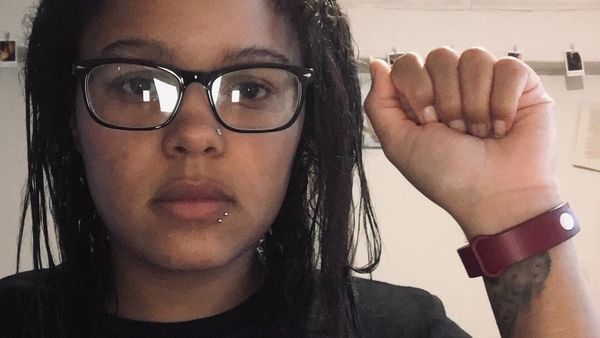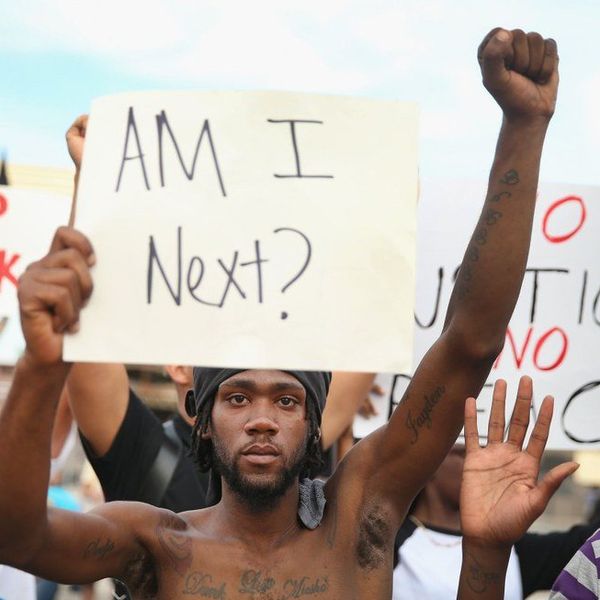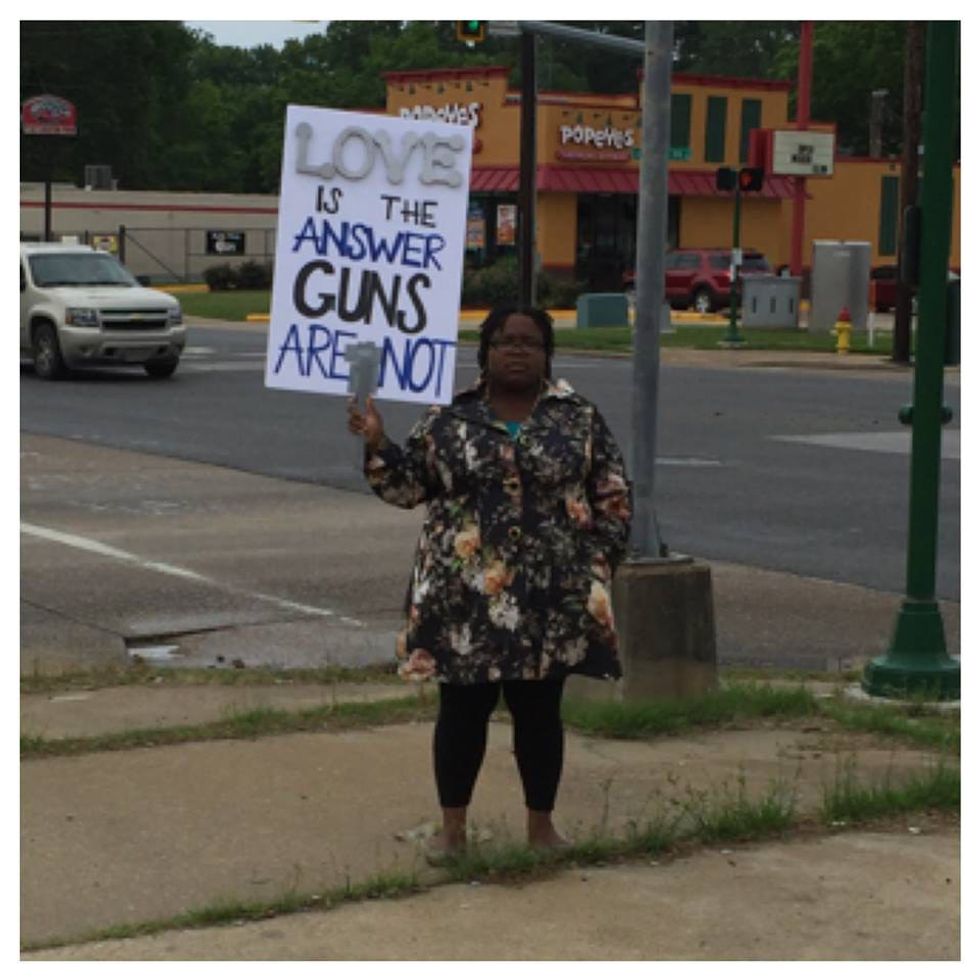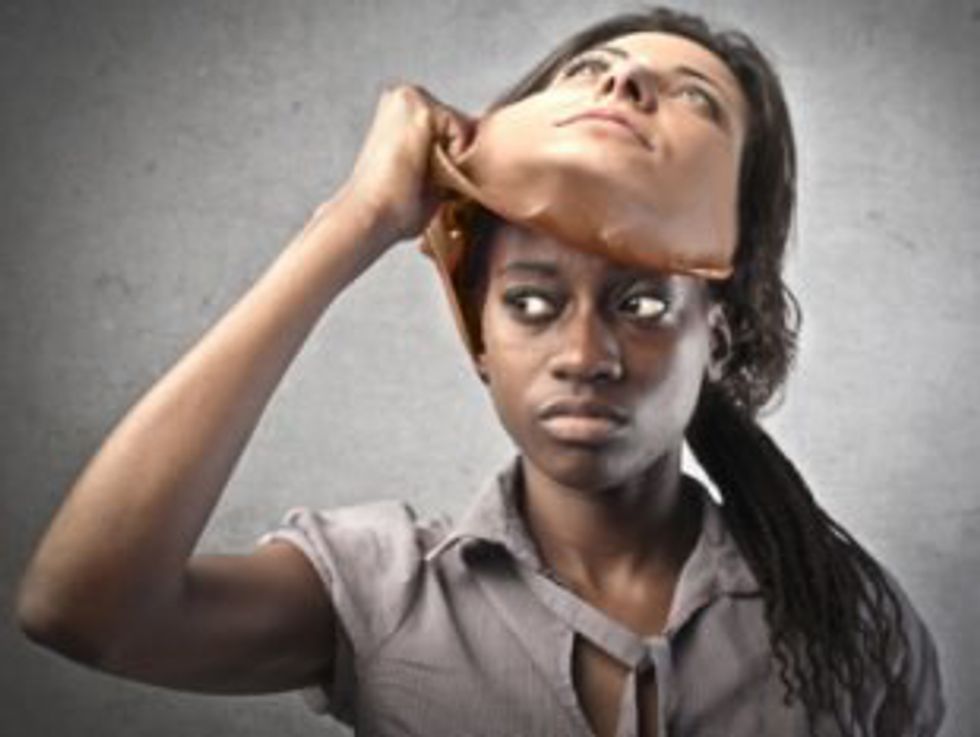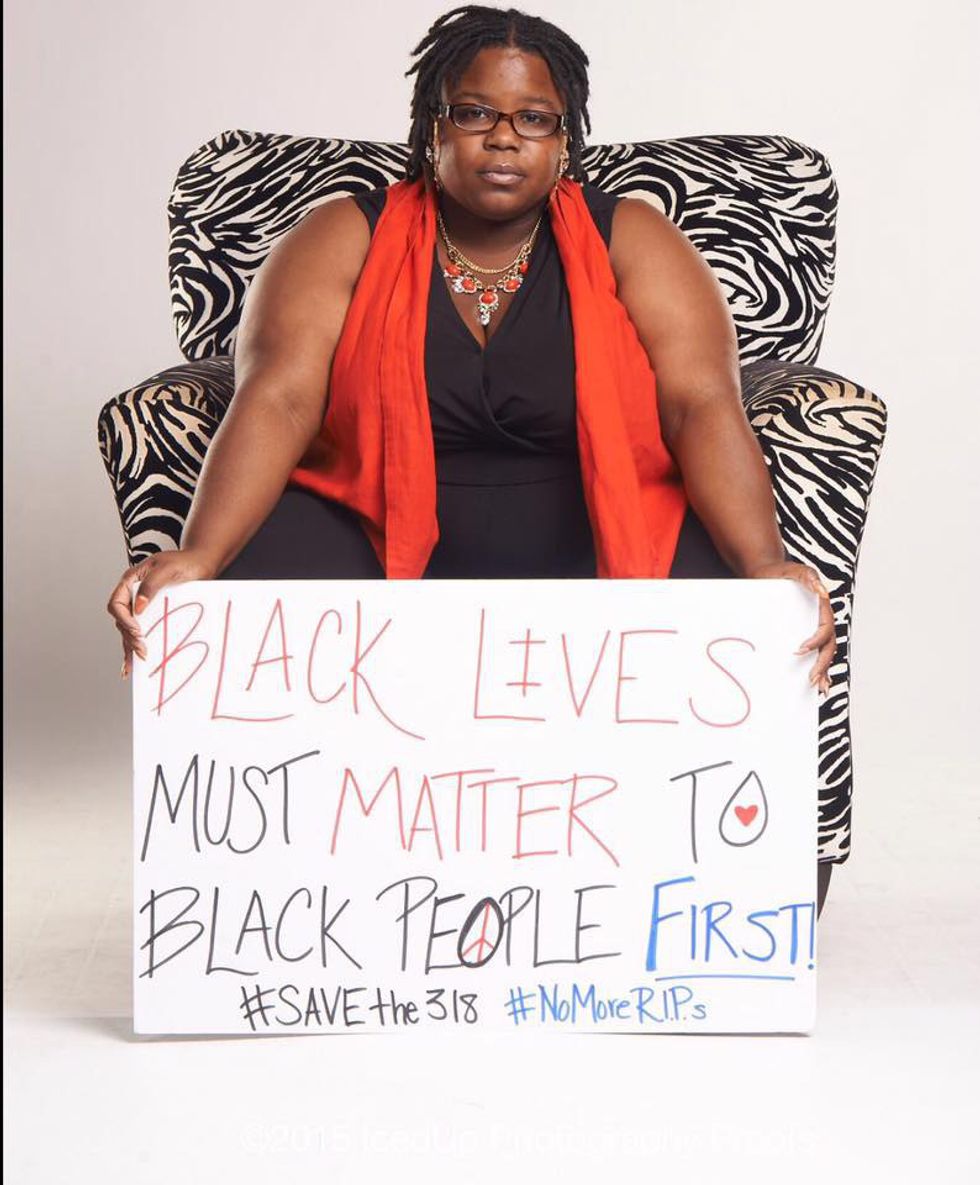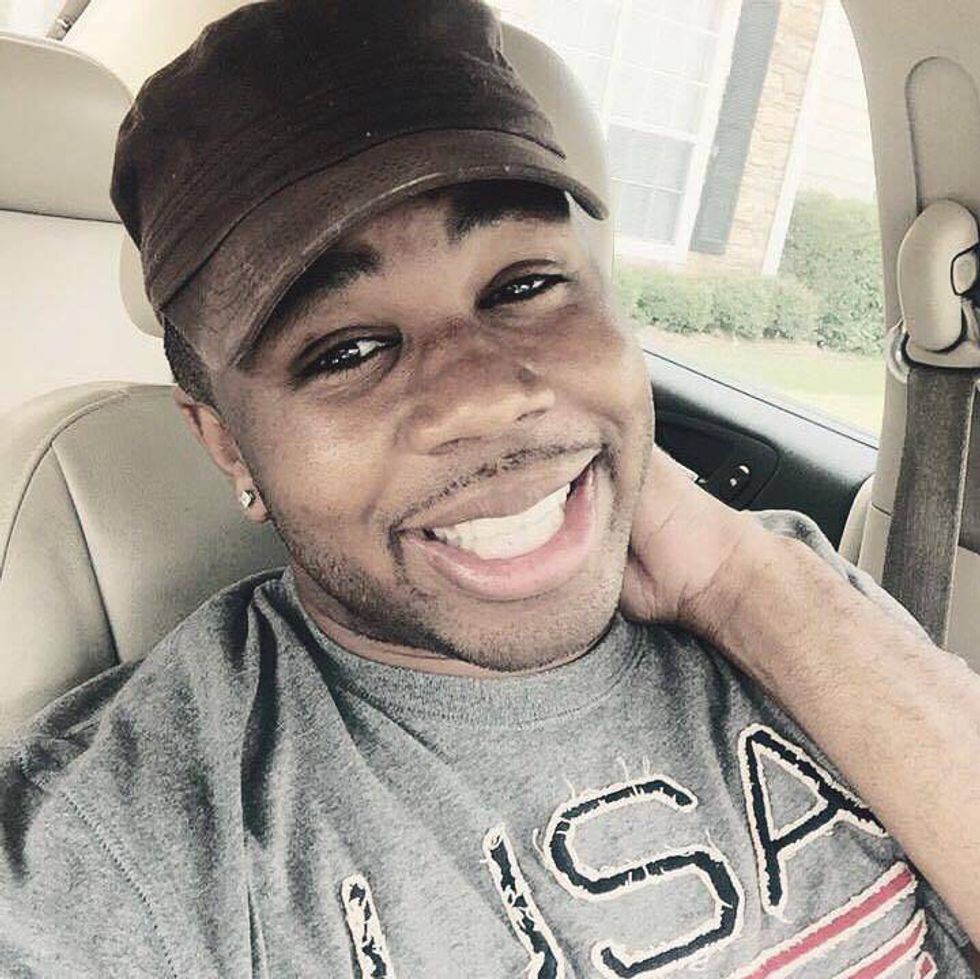Black Lives Matter.
What does that phrase mean to you? And I’m looking at you, white people in the South.
Does it conjure images of angry Black people wanting to shoot cops? Does it offend you because you think it means “Only Black Lives Matter”? If you prefer the term “All Lives Matter,” yet also proclaim “Blue Lives Matter,” do you consider yourself to be hypocritical? Chances are, you’d say you weren’t hypocritical because cops are getting profiled and shot for simply being a cop. Does that scenario sound familiar? No? Well then maybe you haven’t been paying attention.
August 3 was James A. Baldwin’s birthday. A quote of his that’s always stuck with me is: “To be a Negro in this country and to be relatively conscious is to be in a rage almost all the time.” I’m not black, but I’d like to consider myself relatively conscious (although some would assuredly disagree), and the statement has proved true to me, based on personal experience. Usually for me, this sort of talk is met with a sigh of mild aggravation from fellow white people and the tired old phrase: "Why do we have to bring race into this?" If you’re dealing with more aggressive types, such as Bill O'Reilly and Rush Limbaugh, you might be met with scorn and accusations that this sort of “leftist pandering” is directly responsible for police shootings. (Funny, do we hold O’Reilly accountable for the murder of George Tiller, or the Colorado Planned Parenthood shooting by those same standards?) You might even be told that the opposite is true: that minorities are targeted more simply because they commit more crimes, and that “black on black” violence kills more African Americans than the police. You might get told that the victims are now somehow the enemy. Recently, Louisiana was the first state to enact a Blue Lives Matter law, House Bill 935. What does it mean that Police Officers are now a protected class, grouped together with the LGBT and African American communities? Is it fair to compare a career choice with an ethnicity or orientation you are born with? Truly, these are confusing times when there is no middle ground; no room for thoughtful discussion. Do you hate Cops, or Black People? Which one is it, huh? Pick a side… or else.
As with my last article, I didn’t exactly know where the interview I was going to conduct with Crystalyn Whitaker would take me. A few months ago, before the events of Alton Sterling’s death in Baton Rouge and the Dallas police shooting were headline news, Shreveport had been experiencing its own wave of violent crime. I reached out to Crystalyn because her cousin’s life, and her mother’s fiancé’s life were taken by gun violence. My original intention was to tell her story and see things through her perspective as an educator. I lost my cousin, Dewayne Casabonne, to a shooting in 2008. Naturally, ending violence in our community is something we are both very passionate about. White or black, this is an issue that affects us all. White or black, we don’t want cops dead. White or black, we don’t want our loved ones killed. Crystalyn is a teacher at Lakeside, and is soon transferring to Woodlawn. “I teach in black communities because that’s where I’m invested,” she told me. “I’m in the schools, with these kids every day trying to do some type of intervention. That’s what people don’t understand: Nobody wakes up one day and wants to kill somebody. If your surroundings teach you that violence is how you handle conflict, you become cold to it. It doesn’t mean anything to take someone’s life, because you see it happen all the time. Alton Sterling’s death was on Facebook, and kids are seeing this.” Her sentiment is one I share completely. A few weeks ago, I was waking up to fresh stories of brutality and murder daily. What do the inevitable consequences of technology mean for progress? Who knows. But as far as causes to this violence are concerned, it's clear one of the answers is economic disparity. Poverty causes crime, and white privilege has been pumping out plenty of poverty since white people began to come up with half intelligent sounding excuses for their special treatment. Whether it's the store owner who throws the application of a black person in the trash after he walked out the door because he doesn't want his business appearing "hood," (something I've witnessed firsthand), or the more subtle micro-aggression in pressing the lock button a few more times when you see a black person passing by your car–white culture doesn't seem to understand racism. In fact, most seem more offended at the accusation of racism than racism itself. In short, white people are triggered by affronts to their moral superiority.
When I met Crystalyn and her friend Mark Sanders at Bon Temps, a local coffee shop, one of the first things she mentioned to me when addressing the gap of understanding between those who experience white privilege working in their favor and those who do not, was that she has no desire for anyone to be colorblind. “I want you to know I’m black,” she said. “I don’t want you to pretend like we don’t come from different cultures, I just want you to accept it and appreciate my heritage as equal to yours. I don't want you to judge me negatively because I'm black.” This got me thinking. Conservatives, especially in the wake of Trump, have become easy targets for criticism. But what about the left? What about political correctness? The claim is that in the age of PC, we have lost the ability to debate without walking on eggshells. Albeit, this claim is often used by extremist groups to justify their racist leanings, but does it offer up any truth? I believe it does. Since the Black Lives Matter movement emerged, it has been met with knee-jerk, antithetical responses by offended white people. I think this is because many folks aren’t willing, let alone ready, to tackle issues that put into question their very upbringing. We are afraid to talk about the economic disparity that exists between white and black communities and how poverty creates crime. We are afraid to think that White Privilege, the very thing that allows these injustices to continue, is something we’ve had all along and not known about; like a dormant, life-threatening disease. We are afraid to learn that our heroes, like Christopher Columbus, were imperialistic conquerors. We are afraid to contemplate the implications of slave owners penning our most sacred words: All men are created equal. I’ve never thought that saying “Happy Holidays,” so as to include as many as possible in the melting pot that is America, was an example of political correctness. I do, however, think that sweeping under the rug hundreds of years of injustice and hypocrisy so as not to make caucasians feel the dreaded "White Guilt" is as politically correct as you can get. It’s time to stop being afraid. It’s time to talk.
Mark talked to me about a time he was taking photos for a project with a friend. They were in a field, shooting pictures, when a car slowed down for a few suspicious moments and drove off. A few minutes later, they heard sirens and realized the police were coming for them. As soon as the cops got out of the car, they had their guns drawn. They had mistaken the camera and external flash Mark and his friend were carrying for weapons. After they presented their IDs, the policemen were shocked to learn the two “threatening youths” were in the military. This is a story young, black men are all too familiar with. Often the narrative is that black guys are up to no good. "After all, 'black on black' crime is so high, they’re killing everyone! I mean, have you heard the rap music lately? Maybe if they just complied with the officers and didn’t try to cause any trouble there wouldn’t be any problem." But even as a white male, I know firsthand how the police can intimidate you into telling them exactly what they want to hear. A few years ago, some officers on patrol at my friend’s apartment complex stopped behind the car we were parked in and told us to get out. We had been listening to music, not very loud, as we just got back from the Exxon to get cigarettes. We were parked in her designated spot, a few feet from her front door. According to the officers, we were up to no good. And if I didn’t admit to what they were telling me I did, a lie, he would haul my friend off to jail. I refused the intimidation and since we had done nothing wrong, they couldn’t arrest us. They let us go. I shudder to imagine how that situation would have unfolded if I were black. In the military, Mark recounted, his white friends were surprised to learn the history of slavery after being introduced to show ‘Roots’ for the first time. There’s no doubt, history books have been pretty white-washed. People have grown accustomed to an Imperialistic narrative of brave conquerors. The uncomfortable truth is that slavery wove the fabric of this country. How can we disregard the emotional impact of historical racism when only a few decades ago, we had open segregation? We cannot afford to ignore racism and pretend it doesn’t exist, or invalidate its emotional impact any longer. Refusing to acknowledge racism is dangerous. To those who desire to be less PC, a sentiment that I sympathize with to some small extent, I would argue that refusing to acknowledge institutionalized racism and white privilege is about as PC as you can get, only towards white people. It hurts to think all our days spent in youthful bliss were full of lies to promote this imperialism, thus people shouldn’t talk about it. They should get over it, and move on so we don’t have to think about the ugly things. This idea is passive-aggressive. It suggests that acknowledgement of wrongdoing promotes violence. I argue that refusal to acknowledge the transgressions of the past promotes violence and unrest. Black on black crime is high? What about white on white crime? Statistically, black people know more black people. White people know more white people. The fact that black on black crime exists is irrelevant to the Black Lives Matter debate. That’s not white Black Lives Matter is about, and it’s time to stop playing dumb. For a very long time, America has been shouting “Equality!” in public while whispering “Black Lives Don’t Matter” behind closed doors.
“Black people have been taught by society to have two consciences. We have to have a sense of duality,” Crystalyn told me. “There is a way you can speak at home, and a way you’re supposed to speak around white people. When you’re a kid, you don’t understand why you’re always going to your white friends’ houses, but they never come to yours. Only when you’re older do you realize that it’s because of socioeconomic reasons.”
As the three of us continued chatting, we elaborated on what could be done about these potent issues, starting with Shreveport. We talked about the poetry and music nights that Bon Temps offers, and how creatively expressing your emotions can help you to be proactive rather than reactive in the face of frustration. Instead of drawing lines in the sand, it’s time to come together and be honest with one another. Be a force for good in real life, not just on social media. From an artist’s standpoint, I feel that it’s my duty to promote positivism and peace. This is an issue that transcends partisanship. We all have a chance to do this every day. If we decided to stop joining teams, prepping for combat, and only listening to those who simply enforce our already held beliefs, I’d think to myself…what a wonderful world.

